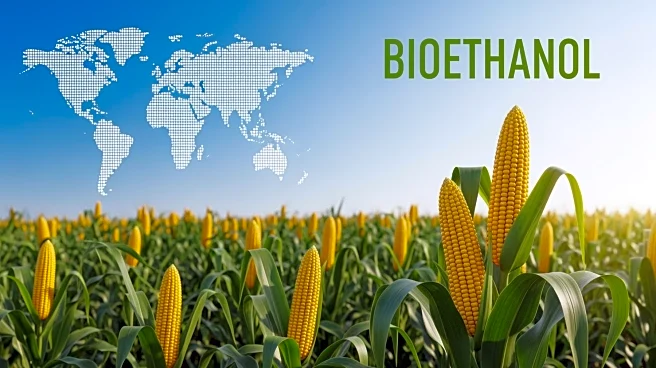What's Happening?
Emily Skor, CEO of Growth Energy, emphasized the importance of bioethanol in agriculture and international trade during the Global Ethanol Summit in Washington, D.C. She highlighted bioethanol as a high-octane,
low-carbon fuel that benefits farmers, strengthens economies, and reduces costs for drivers. The U.S. produces over 10 billion gallons of bioethanol annually, with exports expected to reach record levels. Skor noted that countries like Canada, Brazil, India, and Japan are increasing their bioethanol usage, which boosts demand for U.S. corn and related products. She also pointed out the environmental benefits, including a 20% reduction in carbon intensity over 15 years due to improved farming practices and technologies.
Why It's Important?
Bioethanol plays a crucial role in bridging energy and agriculture policies, offering economic and environmental benefits. Its growth supports the U.S. rural economy by increasing demand for agricultural products and creating a domestic supply chain. The expansion of bioethanol use globally enhances trade relationships and positions the U.S. as a key energy partner. The environmental advantages contribute to decarbonization efforts, aligning with global sustainability goals. As countries seek to reduce carbon emissions, bioethanol offers a viable solution, potentially influencing energy policies and trade agreements.
Beyond the Headlines
Bioethanol's role extends beyond economic and environmental impacts, touching on cultural and ethical dimensions. It represents a shift towards sustainable energy practices and supports rural communities by providing economic opportunities. The emphasis on bioethanol highlights the interconnectedness of energy, agriculture, and trade, encouraging collaborative efforts to address global challenges. As nations prioritize renewable energy sources, bioethanol could drive long-term changes in energy consumption patterns and agricultural practices.










